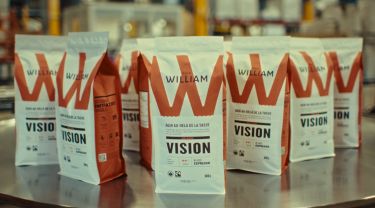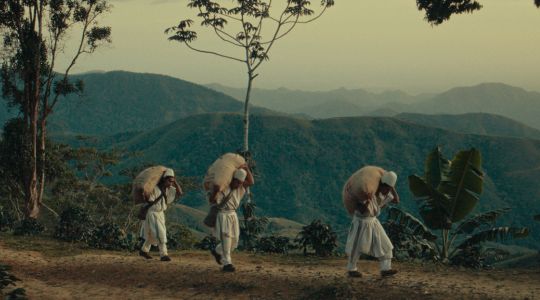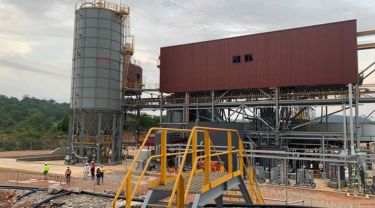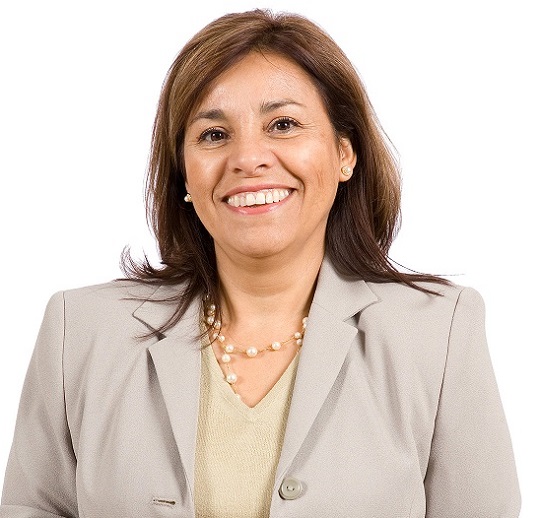Bold brew: Canadian coffee exporter scales sustainably
How environmental values, EDC financing and agility fuelled Café William`s growth.


In this article:
In Sherbrooke, QC, a food and beverage exporter is proving that sustainability and international success can go hand in hand.
Café William, known for its organic, fair trade coffee and environmental commitments, has weathered global trade disruptions and financing challenges to keep growing. Now, with strategic support from Export Development Canada (EDC), the company is aiming to expand beyond the U.S. and explore new markets.

Creating a more responsible sip
Founded in 1988, Café William began as a regional food service supplier and grew into a household name in Québec, selling its products at Costco, one of North America’s largest retail chains. But as President and CEO, Rémi Tremblay, explains, the company values ethical sourcing and environmental responsibility, and aims to do more than sell coffee.
“Fair trade isn’t just a label,” he says. “It’s how we recognize and justly reward the immense efforts of those who grow and harvest the coffee.”
We have expertise and a unique flavour. We make beautiful things in Canada, so why not share that with the rest of the planet?
How to scale sustainably with export financing
As the company grew, it became clear that meeting its sustainability values required more than just ethical sourcing.
In 2022, Café William started construction on a new roasting facility powered by hydroelectricity, a $45-million project designed to double production capacity and support growing demand.
It was a major investment, but the timing was tough. The pandemic had driven up construction costs, while the Canadian loonie hit historic lows against the U.S. dollar, making imports more expensive and squeezing margins. Adding more pressure to their cash flow issues, the company had recently taken on additional contracts in the U.S. and coffee prices were surging, due to drought and poor harvests in Brazil and Vietnam.
Managing cash flow with EDC’s Export Guarantee Program
With their cash flow stretched, the company needed additional financing. Audrey St-Martin, Café William’s director of finance and administration, says, “We had reached our maximum debt capacity, so we needed a third party to guarantee a future loan.”
While talking with their financial institution about ways to access more cash, they discovered EDC’s Export Guarantee Program (EGP). St-Martin says, “By creating a partnership with EDC, we were able to get additional financing to help us get through a few difficult months.”
You should also check out
From in-market expertise to financing, find the right government services for your business.
We used to pay minimal customs fees—maybe around US$20 per full shipment to the U.S. Now, we’re talking US$40,000 to US$50,000 per shipment.
Staying agile during tariff uncertainty
Just a year after opening their new electric coffee roasting plant, the company faced a new challenge: Navigating U.S. tariffs and customs regulations. A 25% duty was imposed on coffee exports to the U.S., threatening their business model and putting them at a disadvantage compared to American competitors.
“We used to pay minimal customs fees—maybe around US$20 per full shipment to the U.S.,” says Tremblay. “Now, we’re talking US$40,000 to US$50,000 per shipment.”
Café Willam started moving some production south of the border to try to keep their American clients. “We didn’t sleep for a couple of months,” remembers Serge Picard, owner of Café William. “We had to turn around very quickly and come up with a contingency plan.”
The company expanded its U.S. operations significantly, managing equipment transfers, immigration concerns and staffing challenges. “Our teams here are doing small miracles, keeping operations going in Canada while launching new ones in the U.S.” says Tremblay.
You should also check out
Expert guidance on how to manage trade regulations, customs requirements and international contracts.
Finding strategic partnerships abroad
To protect their business and manage tariffs, Café William also formed a strategic partnership with a U.S.-based coffee roaster. Both companies agreed to produce coffee for the other in their own country, helping both sides avoid the extra costs.
“Being versatile and transferring some production inside the U.S. put us in a kind of protection mode,” Picard explains. It allowed them to hedge against rising costs while holding on to key clients and building a stronger, more flexible export strategy.
Exploring new markets for Canadian coffee
“In every big crisis, there’s an opportunity,” Picard says. By acting quickly, Café William was able to get in front of new clients and find a way to work with them that benefited all parties.
This agility opened doors to new partnerships and markets. EDC is helping the company look beyond the U.S. and assess potential markets for coffee exports, including high-growth markets in Europe.
EDC’s International Business Advisory team is providing guidance on export permits, labelling and strategic alliances. “Staying on top of the new legal framework environment that we’re now operating in, that’s where resources, like EDC, can be very helpful for our type of company,” Picard says.
Sustainability as a selling point
Coffee is one of the most widely consumed beverages in the world. It’s also one of the most carbon intensive. From farming and processing to roasting and shipping, the supply chain generates significant emissions.
A certified B Corporation since 2024, Tremblay says Café William’s sustainability initiatives help differentiate the brand in competitive markets.

Innovative supply chain logistics
The company has invested in sustainable packaging and even sailboat shipping, although most of its sea freight still travels by conventional cargo vessels.
In 2020, Picard discovered a group building a sailboat with the goal of decarbonizing maritime transport. Café William invested in the project and simultaneously took part in two sailboat shipments from Colombia to Canada with TransOceanic Wind Transport (TOWT), a French sail cargo company.
“The ambition is not that we are going to save the planet by doing this,” he says. “But it’s our contribution to help develop a cleaner sea shipping industry while reducing Café William’s carbon footprint.”
A third sailboat shipment, carrying about 400 tonnes of green coffee, is set for later this fall.
Fair and equitable coffee sourcing
That same commitment extends to the company’s sourcing practices. As a long-time fair trade and direct trade coffee partner, Café William supported producers before sustainability became a priority.
“It’s about ensuring fair trade, ensuring a decent income for producers,” says Tremblay. “It’s extremely important if we want to have coffee for future generations.”
Tremblay says he’s visited countries that produce coffee and seen the impact firsthand: Co-operatives forming, communities investing together and real money reaching producers.
Hydroelectric coffee roasting plant
Café William’s new electric roasting plant is a meaningful step toward more sustainable coffee production. Designed by a German manufacturer and touted as the world’s first industrial-scale electric coffee roasting plant, it’s powered entirely by renewable hydroelectricity for a carbon-neutral process.
Tremblay says these innovations not only align with company values, but they also resonate with retailers and consumers who prioritize climate-conscious sourcing.
Looking ahead: Brewing global potential
With 70% of its exports under private label (products sold under another brand) and growing interest from international buyers, Café William is poised for expansion beyond the U.S.
“We’re starting to look at Europe as a longer-term opportunity,” says Tremblay. “It’s a natural market for Canadian development. We’re working with a firm that helps North American companies prospect in Europe.”
With EDC’s support, the company is turning global challenges into opportunities and proving that a Canadian food and beverage exporter can lead with innovation and values in global markets.
“We have expertise and a unique flavour,” says Tremblay. “We make beautiful things in Canada, so why not share that with the rest of the planet?”
Want to stay ahead of global trade trends?
Subscribe to EDC’s newsletter for expert insights, exporter success stories and practical tips to grow your business internationally.
The content for this customer profile was sourced from the company website, interviews and other third-party resources, but EDC hasn’t independently verified the information or data.
This content was partially created using generative artificial intelligence (GenAI).

















